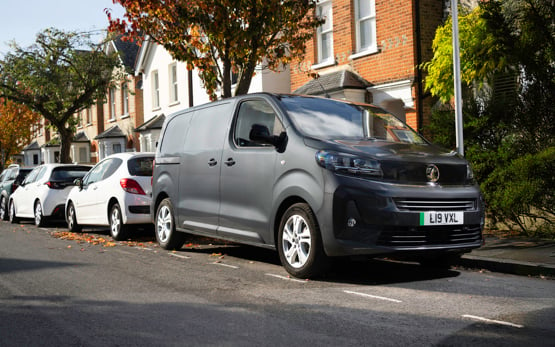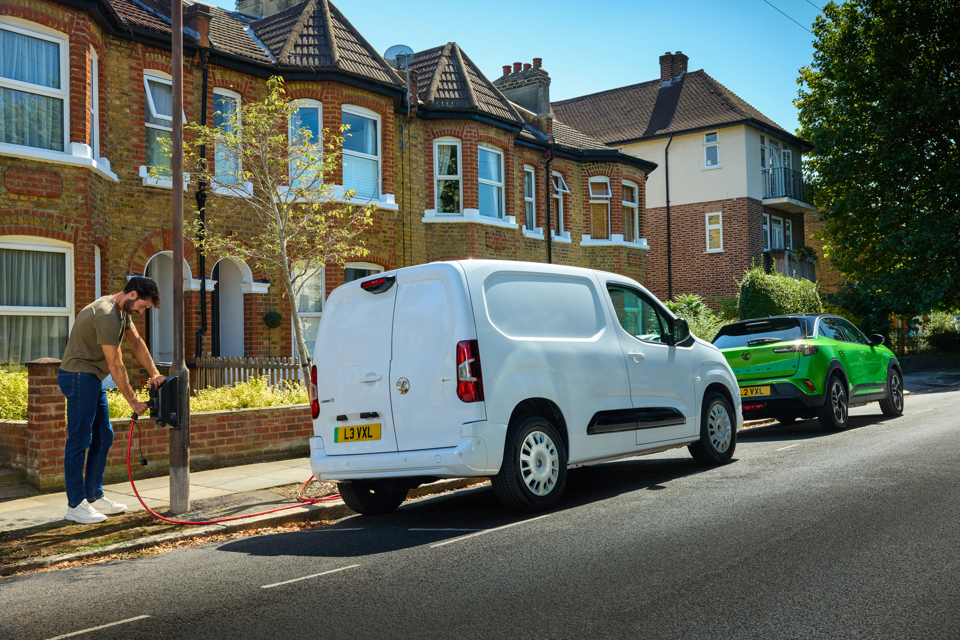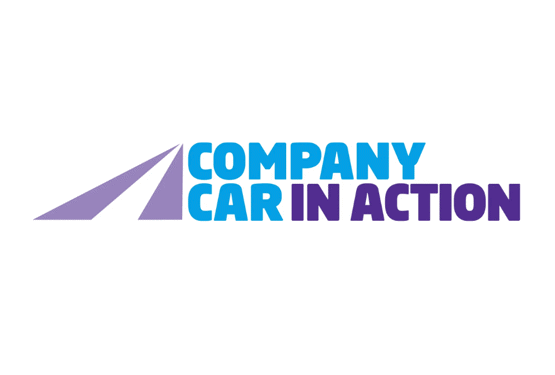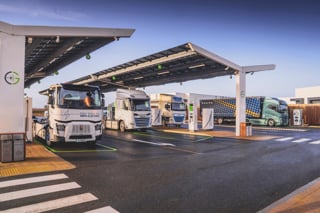The overwhelming majority (90%) of van fleets have said they are reliant on residential charging to make the switch to electric vehicles (EVs), while just over a fifth (23%) cite a lack of infrastructure as a major barrier.
Research by Vauxhall, published in a new ‘Electric Van Adoption Report’, consulted 2,000 UK van fleet operators from a range of industries.
It highlights the desire of fleet operators to adopt electric vans onto their fleets, but also reveals that shortfalls in current levels of on-street charging are making this impractical.
In the findings 84% of fleet operators told Vauxhall they have at least one electric van currently on their fleet, and of those who don’t, 90% say they are planning to welcome an electric van onto their fleet within the next year.
The need for improvements in public charging infrastructure was highlighted further by the fact that 81% of businesses said it would be problematic to install EV charging provisions at their operating bases.
The Association of Fleet Professionals' (AFP) own research estimates that, while 40% of member drivers do not have a driveway, for commercial vehicle drivers, the figure is closer to 70%.

While businesses told Vauxhall they don’t think it would be practical to adopt an all-electric fleet any earlier than late 2028, 90% of fleet operators say they plan for their business to be fully electric before 2035, the date currently set for the Government's planned ban on the sale of new petrol and diesel vehicles.
'Councils need to work with chargepoint operators'
 Eurig Druce, Stellantis UK group managing director, said: “The findings of the Vauxhall Electric Van Adoption Report highlight the growing reliance of UK businesses on residential EV charging infrastructure to make the electric transition.
Eurig Druce, Stellantis UK group managing director, said: “The findings of the Vauxhall Electric Van Adoption Report highlight the growing reliance of UK businesses on residential EV charging infrastructure to make the electric transition.
“Charging at home or work is incredibly convenient, and the charging network on Britain’s major roads is improving at a very rapid pace, however, to ensure fleet operators are comfortable moving to electric, councils need to work with charge point operators to install charge points on residential roads that need it most.”
Stellantis has an ongoing Electric Streets of Britain campaign that invites residents, businesses and fleet operators to register their on-street charging needs.
This information is then passed to local authorities for them to make more informed decisions on where to install new chargers.
Druce said: “Last year, research we conducted with CENEX demonstrated that only 19% of all households who need it are close to a public charge point.
“It is only when this figure increases that businesses and fleet operators will feel confident in their transition towards electrification.”
Manufacturing and utilities fleets express greatest concern
Businesses operating within the manufacturing and utilities industry expressed the most concern over the electric transition, with 90% of fleet operators in this sector saying a move to a fully electric van fleet would be a challenge.
While the survey highlighted shortfalls in the UK’s infrastructure network, 83% of fleet operators currently using electric vans say they bring benefits to their business, and 91% of all fleet operators say switching to an all-electric fleet would positively impact customer perception of their business.
While figures from the Society of Motor Manufacturers & Traders (SMMT) highlighted a 1.3% growth in electric van uptake in 2024 compared to 2023, with omore than 75,000 now estimated to be on the road, the number of public charge points across the UK increased by 38% in 2024, bringing the total to over 73,000 at the start of 2025.
The numbers of chargers installed as been helped in part by the continued roll out of the Government’s Local EV Infrastructure (LEVI) Fund.
Read about the latest LEVI funding announcement for councils to deliver 16,000 chargers.























Login to comment
Comments
No comments have been made yet.